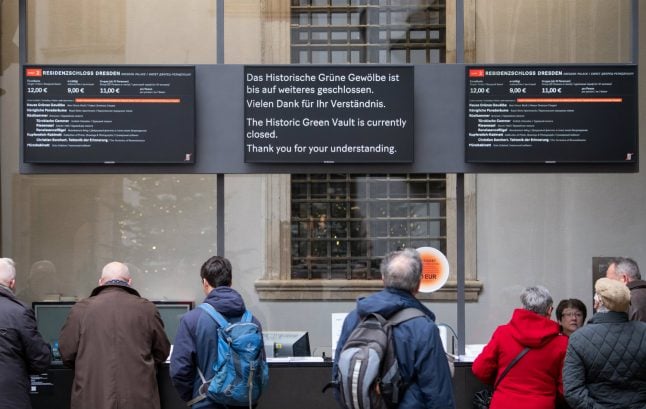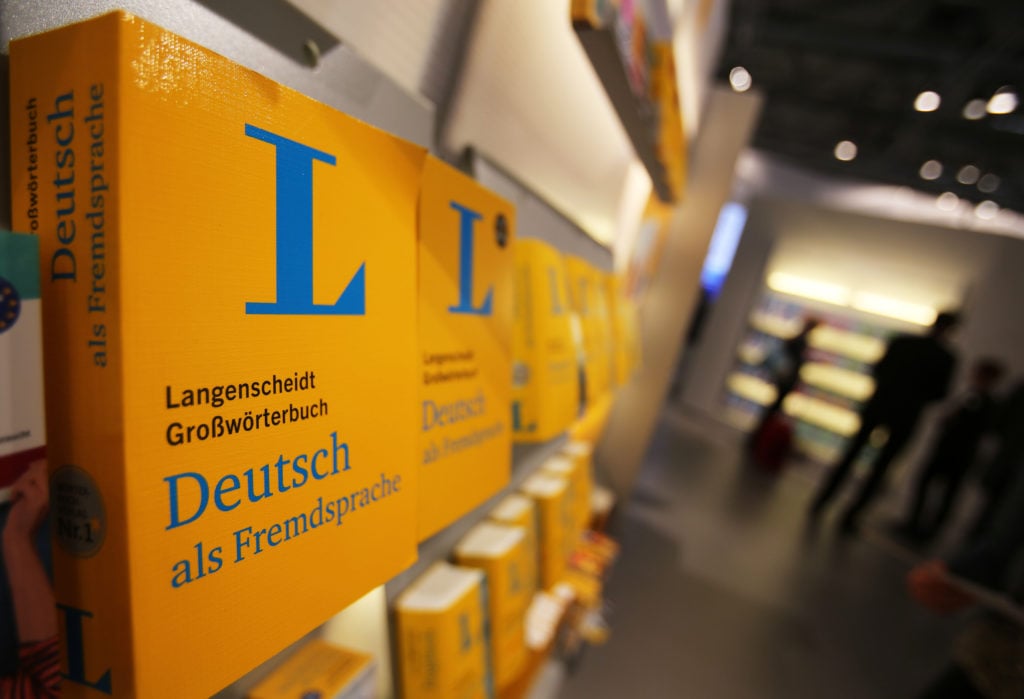According to their report, 160 tip-offs alone were received via a police-operated portal in Dresden, announced police and public prosecutors on Tuesday.
The calls come as police across eastern Germany are continuing their search for the thieves who launched a brazen raid on the Green Vault museum in Dresden's Royal Palace on Monday.
Having initiated a partial power cut, the thieves broke through a window and stole priceless 18th-century jewellery from the collection of the Saxon ruler August the Strong.
On Thursday police officially offered a €500 million reward for anyone who could offer information about the spectacular heist.
READ ALSO: Dresden museum heist: Police offer €500 reward for stolen jewels
‘No urgent suspicion’
According to Klaus Rövekamp, senior public prosecutor, and Jörg Kubiessa, police president, there is no urgent suspicion against any specific person.
However, he said: “Sudden executive measures such as searches and interrogations are therefore possible at any time.”
The police and the public prosecutor's office recreated the course of the burglary early Monday morning – exactly one week after the theft took place just of 5am.
In addition, the procedures at the security headquarters and the technical procedures within the museum were tested to see how well they would perform amid another attempted burglary.
The perpetrators had penetrated the museum through one of the lattice windows in the middle of the night, and had smashed an axe into a showcase in the Jewel Room.
After only a few minutes they were able to escape with the treasures.
The thieves had also sprayed many historical pieces of jewellery with a powder. Yet experts are optimistic that “the remaining works can be cleaned without leaving any residue,” said a spokesman for the State Art Collections (SKD).
Call for increased security
The Jewel Room has been closed to the public since Monday even though the rest of Dresden’s Royal Palace was opened last Wednesday.
“We want to make the Historical Green Vault accessible to the public again as soon as possible,” the speaker from SKD told Spiegel Online.
A new security concept is currently being reviewed together with the state’s building authority, the police and the Criminal Investigation Office.
Following the burglary, the criminologist Daniel Zerbin called for improvements in the protection of art treasures. A rethinking is “absolutely necessary,” he added.
The current case shows the weaknesses of the German security set-up, said Zerbin, especially with regard to the involvement of private companies.
Guards in museums are often regarded as second-class employees and poorly paid, and there is a high fluctuation rate.
The guards of a private security company in Dresden seem to have been overtaxed or restricted in their actions, Zerbin said.
The commercial director of the SKD, Dirk Burghardt, on the other hand, had defended the guard's restraint one day after the break-in.
They had also decided, because of the brutality of the burglars, not to go to the crime scene, but to wait for the police.
'A certain naivety'
In general, Zerbin said that there is a “a certain naivety” surrounding the question of security in the museum management, he said.
Times have changed and serious crime has increased, as the theft of a 100kg, 24-carat giant gold coin from the Bode Museum in Berlin in 2017 shows.
“We are dealing with a completely different kind of readiness to use violence,” said Zerbin, referring to how quickly and aggressively the thieves in Dresden broke into a display case to loot the valuables.
Museum directors must therefore become more aware of their responsibility for security and not only make it dependent on money.
“Excellent art needs excellent security concepts and also security personnel with high commitment values,” said Zerbin.
Vocabulary
The theft – (der) Juwelendiebstahl
Latticed window – (der) vergitterte Fenster
Rethinking – (das) Umdenken
The restraint – (die) Zurückhaltung
The guards – (die) Wachleute




 Please whitelist us to continue reading.
Please whitelist us to continue reading.
Member comments